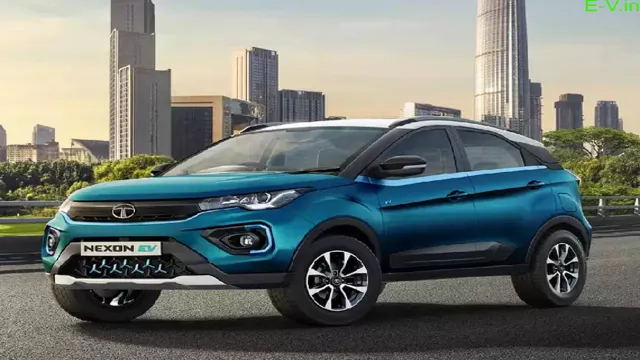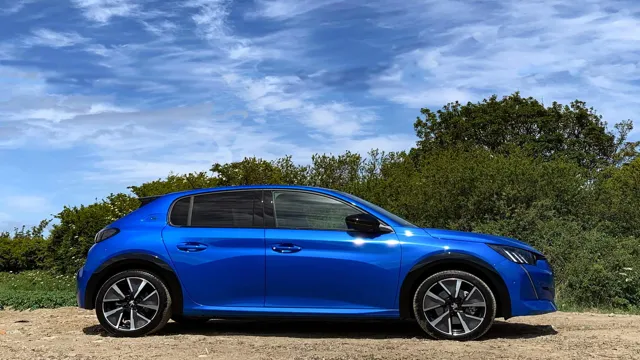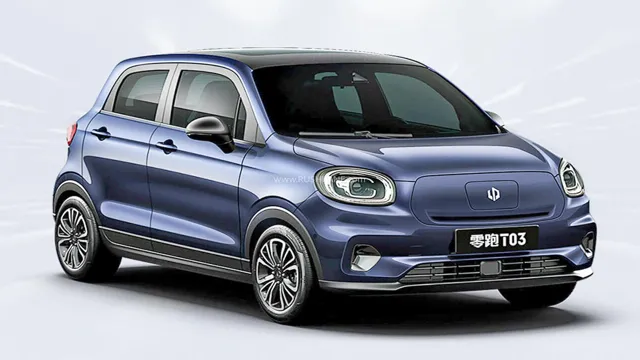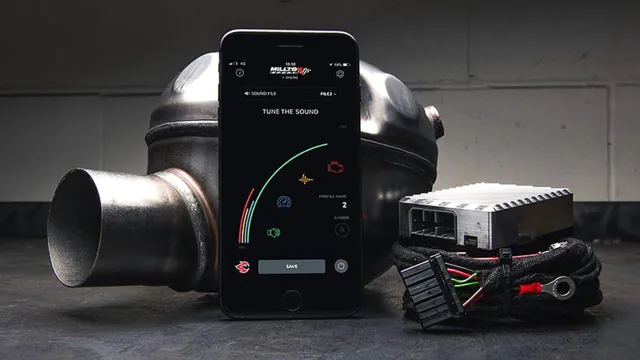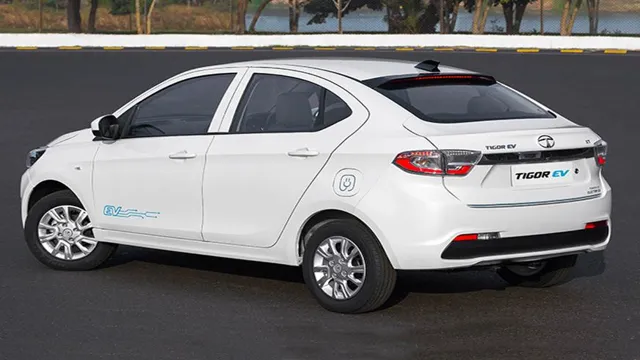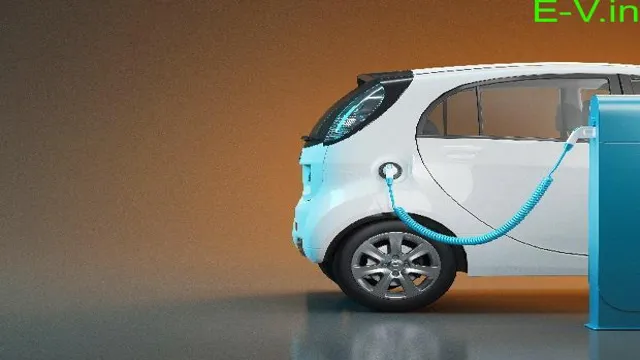Revolutionizing the Indian Roads: Latest Electric Car News and Updates!
Electric cars in India have been garnering significant attention in recent years, and the latest news is sure to excite any eco-conscious car enthusiast. With an increased focus on reducing carbon emissions and promoting sustainable transportation alternatives, the Indian government has been taking significant steps to promote the use of electric cars in the country. This includes increased funding and incentives to stimulate the production and adoption of electric cars, as well as the creation of necessary infrastructure, such as charging stations.
Despite the initial challenges, the Indian electric car industry is growing at an impressive pace, and many global automakers are entering the market to tap into this growing demand. As more and more electric cars hit the Indian roads, the benefits to both the environment and the country’s economy are becoming increasingly apparent. In this blog, we will take a closer look at the latest news in the world of electric cars in India.
From new car launches and technological advancements to government initiatives and policy changes, we will cover it all. So whether you’re a prospective electric car buyer, an industry insider, or simply a curious observer, this is the place to be for the most up-to-date information and insights on electric cars in India.
Electric Vehicle Market in India
In recent years, the electric vehicle market in India has seen a significant increase in demand. With concerns over climate change and pollution, consumers are increasingly looking for cleaner and more sustainable transportation options, and electric cars are a popular solution. The Indian government has also been supportive of this transition, offering incentives for buyers and investing in charging infrastructure.
In fact, India has set an ambitious target to achieve 30% electric vehicle penetration by 2030. This growth in the electric car market has led to several new entrants in the market, including both domestic and international automakers. Furthermore, with advancements in battery technology, electric cars are becoming cheaper and more accessible to the average consumer.
It’s an exciting time for the electric car industry in India, and it will be interesting to see how it develops in the coming years.
Market Growth Potential
The electric vehicle market in India has incredible growth potential. With the government’s push towards reducing carbon emissions and the increasing environmental awareness among the population, the demand for electric vehicles is expected to rise significantly in the coming years. Moreover, rising fuel prices and the need for cost-effective transportation options have also contributed to the growth of this market.
Despite the challenges faced by the industry such as high upfront costs, limited charging infrastructure, and consumer awareness, electric vehicle sales are steadily increasing. Recent government initiatives such as the Faster Adoption and Manufacturing of Hybrid and Electric Vehicles (FAME) scheme, which provides subsidies to manufacturers and buyers of electric vehicles, are also expected to boost sales. The electric vehicle market in India is poised to grow considerably in the near future as it offers a sustainable and cost-effective alternative to traditional fuel-based vehicles.
It’s an industry that has enormous potential to contribute positively to the environment while providing economic benefits to the country.
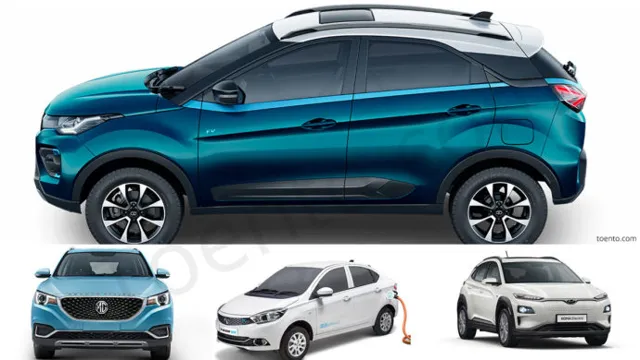
Government Initiatives for EVs
The electric vehicle market in India is on the rise and the government is taking initiatives to encourage more people to switch to EVs. One such initiative taken is the FAME (Faster Adoption and Manufacturing of Electric vehicles) program, which was launched in 201 This scheme aims to promote the use of electric vehicles by providing financial assistance to buyers of EVs and supporting the deployment of charging infrastructure.
Besides, the government has also reduced the GST rates on EVs to 5% to make them more affordable. Additionally, the Indian government is also providing subsidies to manufacturers of EVs, making it easier for them to produce electric vehicles in India. These initiatives have boosted the electric vehicle market in India and more people are now considering switching to electric cars.
With the rising awareness about the environment and the need to reduce carbon emissions, EVs have become a popular choice among Indians. The electric vehicle market in India is expected to grow in the coming years, with more manufacturers entering the market and the government taking measures to promote the adoption of electric vehicles.
Popular Electric Cars in India
Electric cars are slowly but surely making their way into the Indian market. With the rising concern for the environment, it’s no surprise that many people in India are turning to electric cars in the hope of reducing their carbon footprint. Some of the popular electric cars in India include the Tata Nexon EV, Mahindra eKUV100, MG ZS EV, and Hyundai Kona Electric.
The Tata Nexon EV is one of the most affordable electric cars in India, priced at around Rs. 14 lakhs. The Mahindra eKUV100 is another affordable option priced at around Rs.
9 lakhs. The MG ZS EV and Hyundai Kona Electric, on the other hand, are priced between Rs. 23-25 lakhs but offer a more luxurious electric car driving experience.
It’s important to note that electric cars do require a charging infrastructure, which is still in its early stages in India, but the government has made efforts to encourage the installation of charging stations across the country. With more and more car manufacturers entering the electric car market in India, the future of electric cars in the country looks very bright indeed. So if you’re thinking of going green, an electric car could be the perfect solution for you!
Tata Nexon EV Review
When it comes to popular electric cars in India, the Tata Nexon EV is a strong contender. This sleek and stylish SUV offers a range of 312 km on a single charge, making it a great option for drivers looking to go green without being limited by a short battery life. Not only is the Nexon EV environmentally friendly, but it also boasts a powerful electric motor that delivers a quick and responsive driving experience.
The interior is spacious and comfortable, with plenty of high-tech features to keep you entertained on long journeys. Additionally, Tata Motors has made a commitment to providing excellent after-sales service, which is crucial for maintaining your electric vehicle. All in all, the Tata Nexon EV is a top choice for anyone looking to make the switch to electric.
MG ZS EV Review
When it comes to electric cars in India, the options are becoming more diverse and plentiful. One popular choice for eco-conscious drivers is the MG ZS EV. This sleek SUV boasts a range of up to 419 km on a single charge, thanks to its high-capacity battery.
The inside of the vehicle is just as impressive, with a modern and spacious cabin that is sure to impress any tech lover. From the large touchscreen display to the voice-activated features, the MG ZS EV is a car that takes the driving experience to the next level. Plus, with its stylish exterior and smooth handling, it’s no wonder that this electric vehicle is gaining popularity all across India.
So, if you’re looking for an eco-friendly car that doesn’t skimp on style or performance, the MG ZS EV is definitely worth considering.
Mahindra eKUV100 Review
Electric Cars in India Electric cars are revolutionizing the way we travel, and their popularity is increasing by the day. Among the most popular electric cars in India is the Mahindra eKUV100. This fully electric vehicle offers a lot of features that make it an excellent option for commuters looking for a reliable and sustainable car.
With a range of up to 150 km on a single charge and a top speed of 80 kmph, the eKUV100 is perfect for city driving. It also comes equipped with regenerative braking, which helps charge the battery every time the brakes are applied. The car is designed to be compact and is perfect for navigating through tight urban spaces.
The eKUV100 is also an affordable option, making it an excellent choice for those looking to move towards a greener, more sustainable transport option. With its sleek design and impressive features, the Mahindra eKUV100 is undoubtedly one of the best options for eco-conscious consumers looking to make a positive impact on the environment.
Technology Updates in Indian EV Industry
Electric cars in India are gaining traction as the country moves towards a greener future. Recent news highlights include Tata Motors unveiling their new Nexon EV SUV, which boasts a 312km range on a single charge and has fast-charging capabilities. This is a significant step for the Indian EV industry, as it marks the first time an Indian automaker has launched an electric SUV.
Another prominent development is the partnership between Mahindra Electric and Meru Cabs to launch a fleet of electric cabs in Hyderabad. The initiative will create job opportunities for local drivers, facilitate consumer adoption of electric vehicles, and contribute towards reducing pollution levels in the city. Additionally, Ola Electric has announced plans to build the world’s largest two-wheeler manufacturing plant in Tamil Nadu.
The facility is expected to have an annual production capacity of two million units, and the first wave of electric scooters will have a range of 150km on a single charge. Exciting times lie ahead for the electric car industry in India, and it’s heartening to see automakers and organizations work towards a cleaner, sustainable future for all.
Battery Swapping System in Delhi
Electric vehicles (EVs) are on the rise in India, and one significant development in the industry is the battery swapping system in Delhi. This technology is a game-changer as it allows for the swift and efficient replacement of EV batteries. The battery swapping system in Delhi was first introduced in 2019, and it has since expanded to include over 70 stations across the city.
This innovative system aims to alleviate the range anxiety associated with battery-powered vehicles by providing a rapid solution to battery drainage. Instead of waiting several hours for a depleted battery to recharge, drivers can quickly swap out their empty battery for a fully charged one in just a few minutes. This technology is not just practical but also eco-friendly as it eliminates the hassle and environmental impact associated with disposing of old batteries.
With the continued expansion of battery swapping stations in Delhi and other cities across India, it’s clear that the EV industry is evolving rapidly, and this technology represents a significant step towards a cleaner and more sustainable future.
Hyundai’s New Electric SUV for India
Hyundai recently introduced its brand new electric SUV Kona in India, showcasing its latest technology upgrades in the country’s growing EV industry. As EVs continue to gain popularity in India, with a reported 132% increase in sales in 2021 alone, Hyundai’s latest offering boasts a driving range of 452 km on a single charge, making it a strong contender in the market. Aside from its impressive range, the Kona is equipped with several features to enhance the driving experience, including a
25-inch digital cluster display and a 25-inch touchscreen infotainment system. With the Indian government’s push towards electric mobility, Hyundai’s electric SUV is poised to play a vital role in India’s green transportation infrastructure.
The Kona presents a reliable and sustainable solution for Indian drivers looking for an affordable and accessible electric vehicle option that doesn’t compromise on performance or features.
Future of Electric Cars in India
With the rising concerns over pollution and the need for sustainable energy, electric cars have become the talk of the town in India. The Indian government has set a target to electrify all new vehicles by 2030 with incentives for the development of electric cars. Several car manufacturers, including Tata Motors and Mahindra have already launched electric variants of their cars.
Although there are still limitations in terms of charging infrastructure and high costs, the future of electric cars in India looks promising. As more and more people become aware of the benefits of owning an electric car, we can expect to see a significant increase in the number of electric cars on Indian roads. The recent launch of Tesla’s Model 3 has also sparked a lot of interest in the Indian market, with many eager to experience the innovative technology of the electric car.
It is clear that electric cars are the way forward for a cleaner and greener future in India, and the news surrounding their development is constantly evolving.
Conclusion
With the current advancements in technology and government initiatives, electric cars are no longer a futuristic dream but a rapidly growing reality in India. From Mahindra to Tata, major players are entering the market, offering eco-friendly solutions for urban commuters. As the world transitions towards sustainable development, electric cars in India are a promising step towards reducing pollution and emissions.
With the added benefits of reduced fuel costs and lower maintenance, it won’t be long before electric vehicles dominate the Indian automobile industry. The future looks electric in India!”
FAQs
What is the current status of electric cars in India?
Electric cars in India are gaining more traction with the emergence of new brands and the government’s push towards electric vehicle adoption. However, the market is still in the nascent stage and faces challenges in terms of infrastructure and affordability.
Which electric cars are currently available in India?
Some of the popular electric cars available in India include Tata Nexon EV, MG ZS EV, Hyundai Kona Electric, Mahindra eVerito, and Renault Kwid EV.
What incentives are available for purchasing an electric car in India?
The Indian government provides various incentives to promote the adoption of electric cars, including tax exemptions, subsidies, and fast-track registration. Some state governments also offer additional benefits such as reduced road tax and parking fees.
What are some of the challenges faced by the electric car industry in India?
Some of the key challenges faced by the electric car industry in India include the high cost of batteries, insufficient charging infrastructure, lack of awareness among consumers, and limited availability of models. Additionally, the pandemic has also impacted the industry with disruptions in the supply chain and delay in launching new models.

